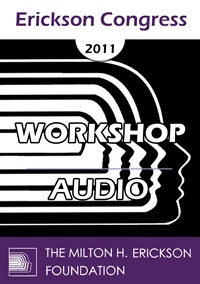
- Average Rating:
- Not yet rated
- Topic Areas:
- Psychotherapy | Workshops | Multicultural | Social Issues | Belief Systems
- Categories:
- Erickson Congress | Erickson Congress 2011
- Faculty:
- Naji Abi-Hashem, PhD
- Duration:
- 59 Minutes
- Format:
- Audio Only
- Original Program Date:
- Dec 07, 2011
- Short Description:
- This workshop examines how globalization, secularism and rising fundamentalism shape the lives of clients and caregivers in a rapidly shifting world. Through cultural analysis, personal stories and clinical reflection, the presenter explores identity, belonging, dislocation and the psychological fatigue created by constant change. Participants learn how to work sensitively across cultures, recognize their own biases, and support clients navigating polarization, loss of tradition and the search for stability and meaning.
- Price:
- $20.00 - Base Price

